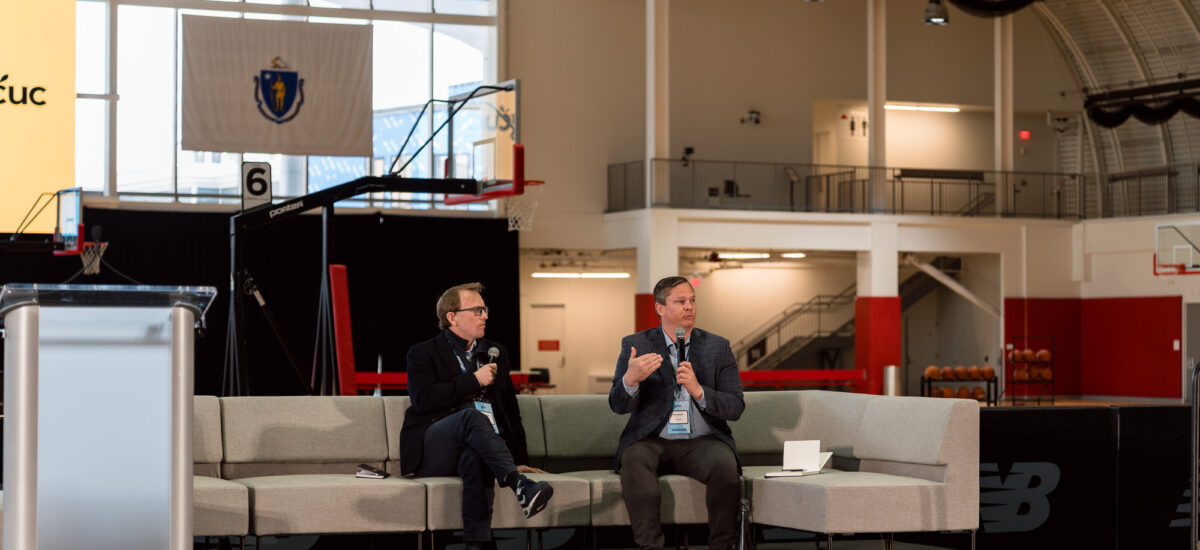Scaling Smart: Winning Secondary-Market Strategies | GCUC

At GCUC, we know the next wave of coworking and flex workspace growth won’t just happen in the major metros.
Secondary markets are the next frontier — but success demands a smarter, more localized playbook.
During our “Scaling Smart” session from GCUC Boston, industry leaders — including Bill Bennett of Expansive and Rupert Dean of x+why — shared real-world insights on how to navigate these markets with intention, agility, and heart.
Here’s what we learned:
Market Selection: Precision Over Popularity
Not every secondary city is ready for flex — and choosing the right market is half the battle.
✅ Focus on cities with high education levels and strong income demographics
✅ Dig deep into local economic drivers — beyond surface stats
✅ Analyze the competitive landscape carefully
Bill Bennett emphasized the importance of truly understanding the local economic story — not just whether a market looks good on paper, but whether it has the underlying fundamentals to support a thriving flex community.
Bottom line: It’s not about chasing every opportunity. It’s about choosing wisely.
People and Community: The Core Advantage
Success in secondary markets is personal.
Your brand reputation — and your revenue — depend on real relationships.
✅ Invest in top-tier local talent who can authentically represent your brand
✅ Foster a hospitality-driven culture that scales without losing soul
✅ Build deep community ties — with local businesses, universities, and civic leaders
✅ Show up with humility — not as an outsider looking to “take over”
Rupert Dean highlighted how x+why’s UK expansion succeeded by embedding deeply into the local fabric of each city they entered, focusing on purpose-driven community building.
Product Differentiation: Fit the Market, Not the Mold
Secondary markets don’t want a copy-paste of New York or London.
They want offerings that feel built for them.
✅ Customize your design, amenities, and events to local preferences
✅ Introduce specialized features — like local F&B partnerships or tailored wellness programs
✅ Build aspirational but accessible spaces that elevate the local standard
✅ Stay flexible — what works in Denver might not work in Des Moines.
The key: Stand out — but don’t stand apart.
Economic Reality Check: Different Market, Different Math
Patience and pragmatism are essential.
✅ Set conservative revenue projections — flex demand builds differently outside Tier 1 cities
✅ Understand local rent dynamics and slower appreciation rates
✅ Target spaces around 30,000 square feet for operational efficiency
✅ Plan for longer absorption periods — success is a marathon, not a sprint
Bill Bennett shared how Expansive grew successfully in secondary and tertiary markets by being deeply disciplined financially, maintaining ownership of assets, and controlling costs without compromising quality.
Operational Excellence: Systems Meet Local Savvy
Scaling without strong infrastructure is a non-starter.
✅ Build robust reporting, marketing, and management systems
✅ Leverage local broker networks to stay plugged into deal flow
✅ Partner with local institutions — universities, economic development groups, enterprise clients
✅ Customize your operations without losing the core brand DNA
Rupert Dean stressed that scaling culture alongside operations is critical — the brand experience must feel consistent, even when markets are different.
The Big Picture: Smart Growth Wins
Secondary markets offer incredible upside — but only for those willing to do the work.
Success demands local knowledge, strategic flexibility, deep community investment, and operational discipline.
At GCUC, we believe scaling smart isn’t just about growing fast — it’s about growing right.
If you build with intention, the opportunities are limitless.
✅ Want more insights like these?
Join us at future GCUC events — where the flex community’s smartest voices come together to shape what’s next.
Online you can always find us in the GCUC Community.
In person, catch us at GCUC UK. Manchester and London happening soon.







